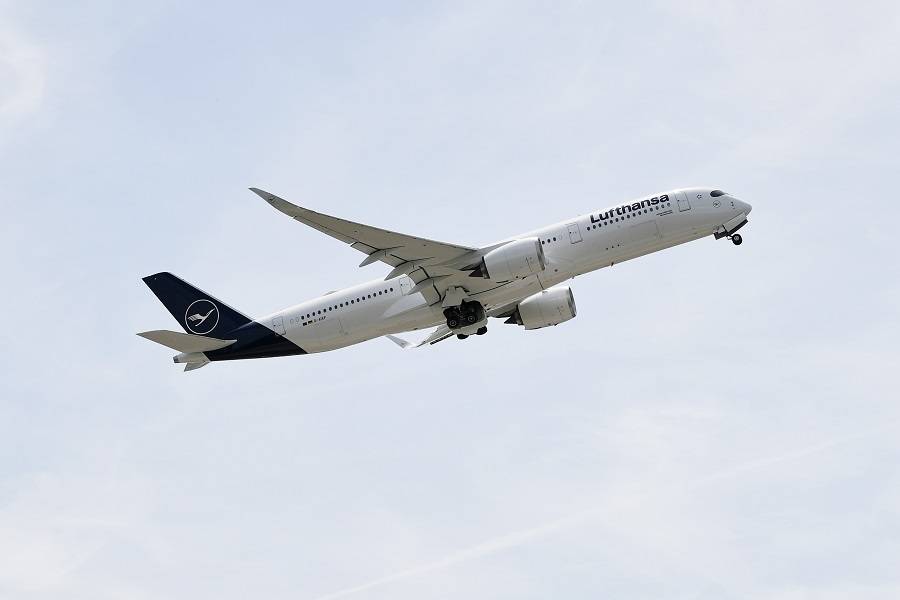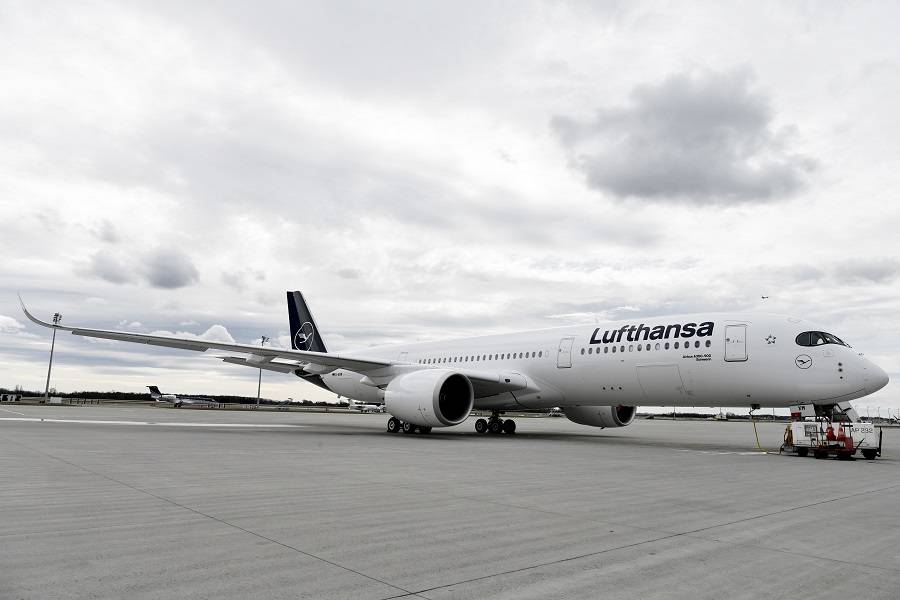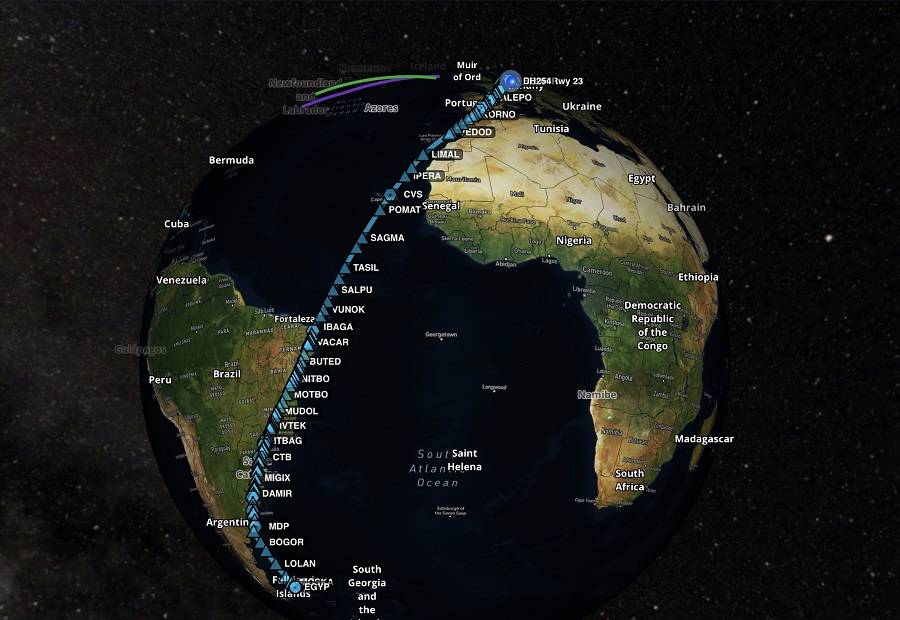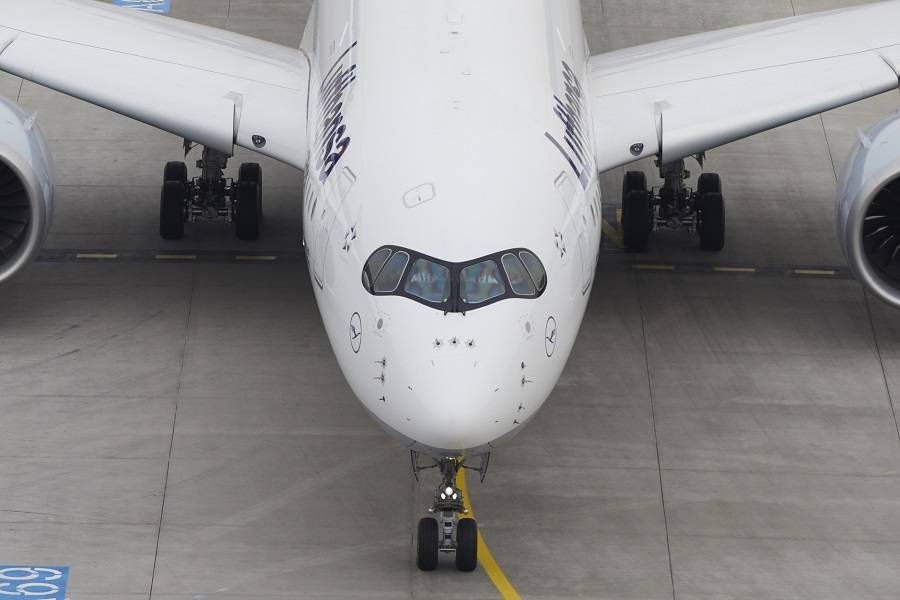Lufthansa today completed a flight to the Falkland Islands in the south Atlantic. It is Germany’s SECOND longest-ever flight. And the German carrier’s longest.
The pandemic caused several unusual events in the past few months. It meant we all had (and still have) to reduce our movements dramatically. It blocked some types of travel or destinations completely, and severely limited others. But in the case of Lufthansa and the Falkland Islands, it meant having to make travel more direct. And quite a bit faster, too.

The Falkland Islands are fairly isolated – normally a negative, for most places. But in a pandemic, that’s not a bad quality to have. The islands’ population have had 41 cases of COVID-19 (39 recovered, no fatalities) in a population of around 3,500. And they would very much like to avoid any more. So they are taking all the precautions they can, to ensure this is the case.
But there’s a problem. The Falkland Islands are the base of Polarstern, an Antarctic research vessel. Scientists and the ship’s crew cycle through it periodically. And they were due for a change in shift. Ordinarily, crews would use scheduled flights from Hamburg in Germany to South America, and then on to the Falklands. This is not an option in the pandemic.

Reaching The Falkland Islands In The Pandemic
At the top of this page we wrote that this flight from Hamburg to the Falklands was the second longest ever from Germany. The actual longest-ever flight was also done recently. But it wasn’t Lufthansa that did it, it was the Luftwaffe. A German Air Force aircraft flew from Cologne to Canberra, Australia. They took 19 hours and 13 minutes. The aircraft was a brand-new Airbus A350. This plane type was also Lufthansa’s choice, for its flight to the Falkland Islands.
This flight landed to RAF Mount Pleasant in the Falkland Islands yesterday. It took 15 hours and 36 minutes. The aircraft only had 92 passengers aboard. But it also had a large crew, of 16 members. This included enough pilots for both legs of the flight, as well as extra engineers and ground crew. These were in case anything exceptional happened to the aircraft in the Falklands. They had to go, because sending any more people after this aircraft, would be very expensive. And would take a very long time.

Everyone on that Airbus, including all passengers and flying crew plus other airline staff, quarantined for two weeks before the flight, in Bremerhaven. Somewhat surprisingly, a lot of Lufthansa crews put themselves forward, to take part in this flight, despite the strict requirements. Those selected even made their 2-week quarantine an event, with more Lufthansa employees taking part in on-line sports challenges!
Turning Around A Jet With (almost) No Ground Crew
The flight also required some additional coordination with staff at RAF Mount Pleasant at the Falkland Islands. No ground crew or anyone else from the islands will get close to the Airbus. The RAF base does serve other Airbus aircraft, namely the Voyager KC-2/MRTT (air-refuelling A330). Suffice it to say, the RAF base has the necessary equipment to handle a visiting Airbus. But Lufthansa technicians had to coordinate with them, to avoid unnecessary contact on the ground. Nonetheless, someone will have to bring some airstairs to them… and take them away later.

Once there, the Lufthansa crews will rest for a couple of days. Alas, they won’t be able to enjoy their visit to such a rare part of the world. They will have to isolate while on the islands, too. Among the other goodies they carried to the Falkland Islands, they have cleaning equipment, to turn the plane around themselves.
So on Wednesday, the Lufthansa crew will board the Polarstern’s departing crew and scientists, and leave the Falkland Islands. It is truly a rare event, that puts ‘mere’ transatlantic flights to shame. And actually, it is a bit longer than the distance the RAF’s Voyager would travel, to get to the islands from the UK! The fastest time an RAF Voyager did, from RAF Brize Norton to Mount Pleasant, was 15 hours and 9 minutes. This, too, happened in the pandemic, for similar reasons…



